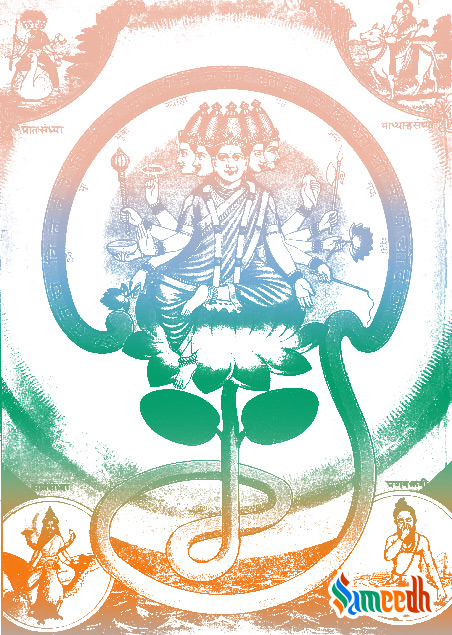The meaning and advantages of the holy Hindu mantra of devotion

Why do we chant Gayatri Mantra?
Gayatri Mantra, also known as the Savitri Mantra, is a part of Rig Veda, one of the four Hindu religious scriptures. This mantra is dedicated to goddess Savitri or Gayatri, the sun Vedic deity from whom everyone is born and nourished. She is believed to be the mother of all four Vedas; Rigveda, Yajurveda, Samaveda and Atharvaveda. With such an immense collection of knowledge, she is known to enlighten minds by eradicating ignorance or darkness. This mantra assists in finding an awakening too through the forces of information, wisdom.
Gayatri Mantra is also used to evoke the Gayatri Shakti or energy in one’s being too. This energy is a combination of three others namely, Tejas – Radiance, Yashas – Victory and Varchas – Brilliance. Regular chanting of this mantra helps you enhance and attract these powers.
Benefits
This holy mantra is chanted during Janeu bestowing ceremony marking the beginning of Upanayana phase of learning and acquiring knowledge as goddess Gayatri sits at the peak of all worldly and spiritual knowledge. A child is first taught this divine chant before everything else as it is crucial to commence from the ultimate melody of learning. This hymn of devotion towards goddess Savitri is associated with education through gaining knowledge and intellectual insights. It can be sung on auspicious occasions too before or while performing rituals as this sacred mantra would invite positive vibrations. Although there is no particular time for the devotion to goddess Gayatri, people prefer singing it while conducting their daily religious rituals during the day around sunrise and in the evening at sunset.
In Hinduism, this mantra is known to increase and boost grasping skills, concentration, focus and memory powers. This helps in expanding the capacities of the brain and making more room for various studies of arts, science, politics, religion, language and spirituality. It definitely has a calming effect on the mind, supporting one to get rid of stress, pressure, and enabling the functioning of a positive, healthy mindset. By humming it out loud, it generates a regular flow of breath as well, overall creating a peaceful state in the body. Periodic chanting of Gayatri Mantra keeps the mind from being dull and attracting idle or useless thoughts.
Meaning of Gayatri Mantra
Gayatri Mantra contains 24 letters, similar to the mobile vertebrae of the human spine. Just as the spine supports and steadies the back and keeps one committed, Gayatri Mantra keeps the brain and intellect supported.
ॐ भूर्भुवः स्वः
तत्सवितुर्वरेण्यं
भर्गो देवस्य धीमहि
धियो यो नः प्रचोदयात् ॥
Om Bhur-Bhuvah Svah
Tat-Savitur-Varennyam
Bhargo Devasya Dhimahi
Dhiyo Yo Nah Prachodayat ||
Om is the holy sound through which the entire Universe is believed to have been created. Bhur, Bhuvah and Svah refer to the three worlds of physical plane, space, heaven or time – past, present, future, three states of consciousness – fully awake, dreaming and sleeping.
The other words translate to:
Tat – god, supreme, that
Savitur – Sun, goddess Savitri
Varennyam – adore, admire
Bhargo – enlightenment, illumination
Devasya – god, divine
Dhiyo – Intelligence
Dhimahi – understanding, contemplation, meditation
Prachodayad – enlighten, pray, guide
The meaning of the chant is a prayer to goddess Gayatri, the sun deity, the divine supreme force, to guide us with knowledge and equip us with intellectual understanding so our minds and hearts that are filled with darkness will get illuminated and we could reach enlightenment.